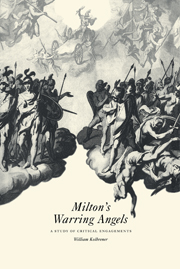Introduction
Published online by Cambridge University Press: 23 November 2009
Summary
He was in fact … of both parties.
Christopher HillOn the frontispiece to Richard Bentley's 1732 edition of Paradise Lost, beneath the engraving of the young John Milton, stands the Latin epigram, Nascuntur Poetae, non fiunt – “poets are born, not made.” Notwithstanding this epigrammatic pronouncement (which echoes throughout Bentley's Paradise Lost), Bentley's text – with its audacious emendations meant to “correct” Milton's text – bears witness that the author “Milton” has been continually “made” and re-made in history. Indeed, as Bentley's contemporary Lewis Theobald observed, Bentley's Milton wrote in the manner that Bentley thought he “ought to have.”
In the following study, Bentley's Paradise Lost not only serves to prove Hans-Georg Gadamer's assertion that literary interpretation is “a productive activity,” but to help establish a particular pattern and dynamic to the reception and interpretation of john Milton's texts. To be sure, this is to follow a dominant mode in modern Milton scholarship in which, from Thorpe's Milton Criticism of 1951 to Tennenhouse and Armstrong's recent Imaginary Puritan, the presence of earlier Miltons – the products of previous interpretive undertakings – have pushed critics in the direction of historiography. The primary historiographical trope of this study is a simple one: that of Milton's “warring angels” – or more particularly, that of angelic and satanic “camps” of critics.
- Type
- Chapter
- Information
- Milton's Warring AngelsA Study of Critical Engagements, pp. 1 - 8Publisher: Cambridge University PressPrint publication year: 1997



